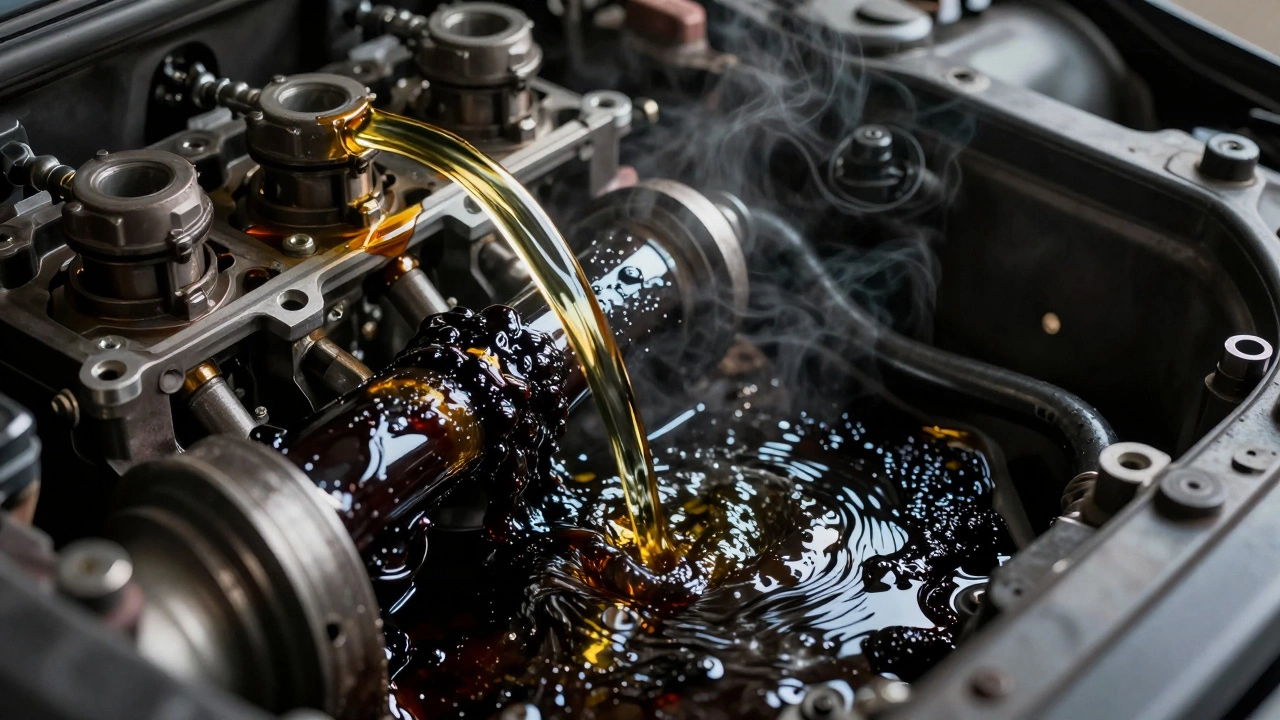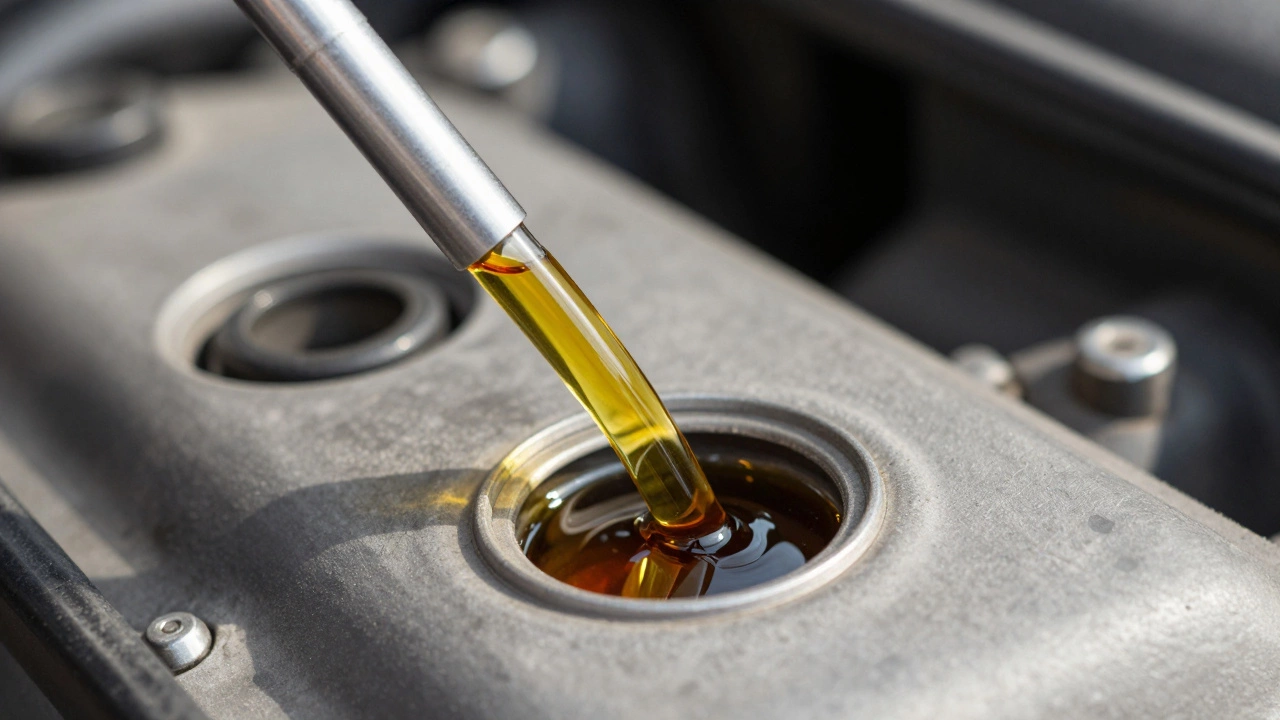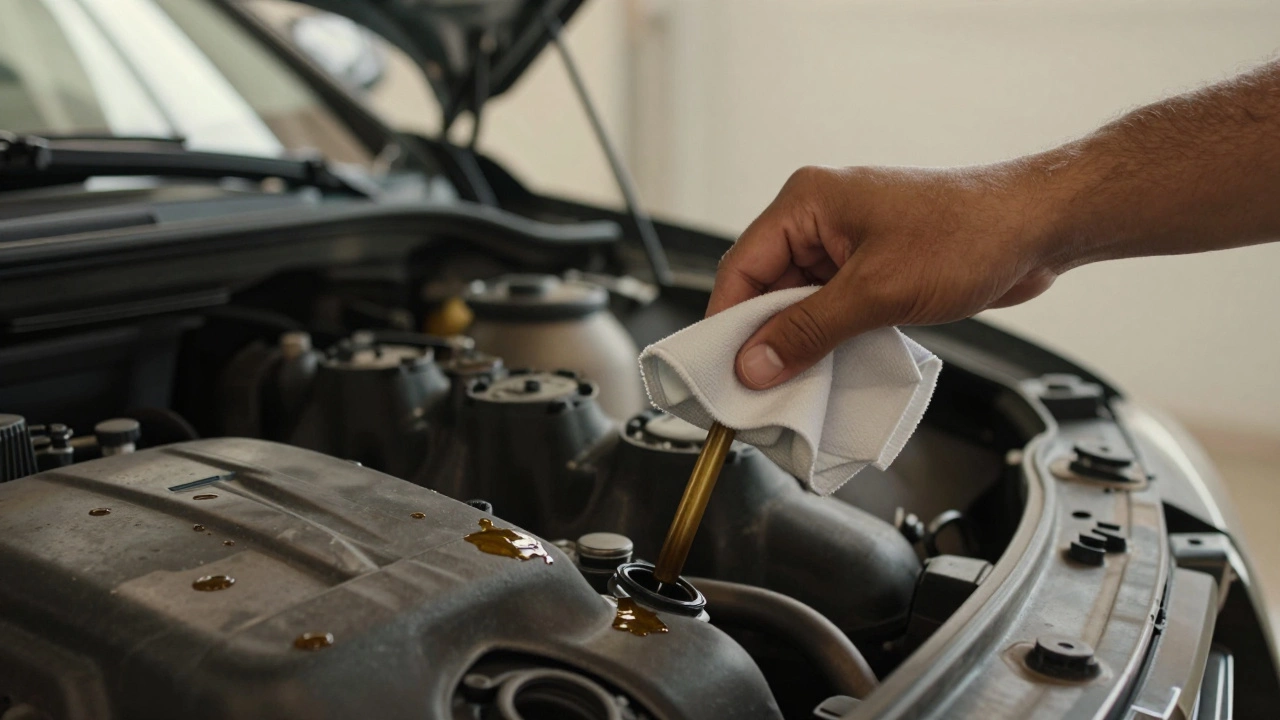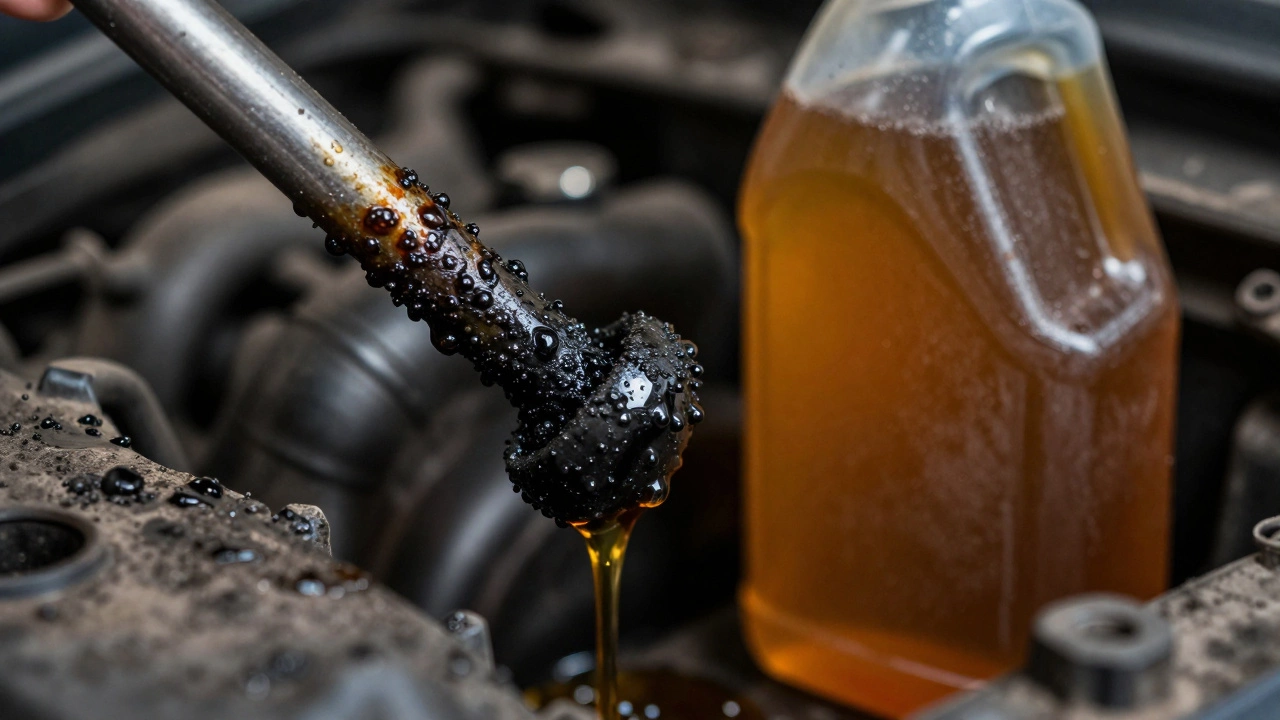Engine Oil: Simple Tips to Pick, Check, and Keep It Fresh
If you’ve ever stared at a bottle of oil and wondered which one is right for your car, you’re not alone. The right engine oil can keep your engine cool, quiet, and lasting longer. In this guide we’ll walk through how to choose the correct oil, how to check the level, and when a change is due – all in plain English.
How to Choose the Right Engine Oil
First thing’s first – look at the sticker under the hood or in your owner’s manual. You’ll see a code like 5W‑30 or 10W‑40. The first part (the ‘W’) tells you how the oil behaves when it’s cold, which matters for winter starts. The second number shows how thick the oil stays when the engine is hot.
If you drive a lot of short trips, a synthetic blend can be worth the extra few pounds because it stays stable longer. If your car is older and has higher mileage, a high‑mileage formula with extra additives can help reduce leaks and oil burn‑off.
Don’t overthink the brand name. Proven names like Mobil 1, Castrol, and Shell all meet the same specs as long as the viscosity matches what the manufacturer recommends. When you’re in doubt, the team at Northwich Tyres Centre can check your car’s specs and point you to the right bottle.
Checking & Top‑Up: Simple Steps
Checking oil takes less than a minute. Park on level ground, turn the engine off, and wait a minute for the oil to settle. Pull out the dipstick, wipe it clean, re‑insert it fully, then pull it out again. The stick will have two marks – low and full. Your oil should sit somewhere in the middle.
If it’s low, pop the cap, add oil a little at a time, and re‑check the level. Too much oil can be just as bad as too little, so go slowly.
Most modern cars beep when oil is low or when it’s time for a change. If your car doesn’t have that feature, set a reminder every 5,000‑7,500 miles (or every six months) to get a fresh oil change. Skipping this step can let sludge build up, which leads to noisy engines and higher fuel use.
When you’re ready for a change, bring your car to Northwich Tyres Centre. Our technicians drain the old oil, replace the filter, and refill with the oil you picked or one we recommend. We’ll also inspect for leaks and give you a quick rundown of your engine’s health.
Remember, oil isn’t the only fluid that matters. A quick glance at coolant, brake fluid, and power‑steering fluid keeps the whole car happy. But oil is the lifeblood – treat it right and you’ll notice smoother acceleration, better fuel economy, and fewer trips to the garage.
Got a question about synthetic vs. conventional, or want to know if a high‑mileage oil could help your older hatchback? Drop by the centre or give us a call. We love helping drivers keep their engines running clean and cheap.
 23 February 2026
23 February 2026
How Bad Is It to Be Overdue for an Oil Change? Real Risks and What Happens Next
Being overdue for an oil change can lead to serious engine damage, costly repairs, and even total engine failure. Learn the real risks, signs of trouble, and what to do if you've waited too long.
 15 February 2026
15 February 2026
How Can I Tell If My Oil Is Still Good? Simple Ways to Check Engine Oil Condition
Learn how to tell if your engine oil is still good with simple DIY checks: color, smell, texture, and the paper towel test. Stop guessing and start knowing when it's time for a change.
 5 February 2026
5 February 2026
Can You Start Your Car Right After Adding Oil? Expert Guide
Learn whether it's safe to start your car right after adding oil. We break down the correct steps, common mistakes, and best practices to keep your engine running smoothly. No waiting required-just follow these simple guidelines.
 29 January 2026
29 January 2026
Which Oil Is Better: 5W30 or 10W30? The Real Difference Explained
5W30 and 10W30 engine oils have the same hot viscosity but differ in cold flow. Choose based on your car's manual, climate, and engine age-never guess. 5W30 is better for cold starts and modern engines.
 26 January 2026
26 January 2026
What Happens If You Go Over 5000 Miles Between Oil Changes?
Going over 5,000 miles between oil changes won't immediately destroy your engine, but it slowly damages internal parts, increases wear, and risks costly repairs. Learn what really happens to your engine-and how to avoid expensive mistakes.
 16 November 2025
16 November 2025
How Long Will a Car Run Without Oil? The Brutal Truth
A car can run without oil for less than five minutes before catastrophic engine failure. Learn how quickly damage occurs, why modern engines die faster, and how to prevent this costly mistake.
 26 October 2025
26 October 2025
How Long Does Engine Oil Last in Your Car?
Learn how long engine oil lasts, the factors that affect its lifespan, and when to change it for optimal car performance.
 23 October 2025
23 October 2025
Engine Oil Change Neglect: Key Symptoms Your Car Shows
Learn the warning signs of overdue oil changes, from early dashboard alerts to severe engine damage, and discover how to protect your car and avoid costly repairs.
 22 October 2025
22 October 2025
Is Driving 1,000 Miles Past Your Oil Change Dangerous?
Learn the risks of driving 1,000 miles past your oil change, how oil degrades, warning signs, and smart steps to protect your engine.
 12 October 2025
12 October 2025
Using Regular Oil Instead of Synthetic: Risks, Effects & What to Expect
Learn what happens when you use regular motor oil instead of synthetic, covering risks, engine wear, warranty issues, and how to switch back safely.
 19 June 2025
19 June 2025
How Much Oil Should I Add if It's Low? Quick Engine Oil Guide
Wondering how much oil to add when your engine oil is low? This article breaks down how to spot a low oil level, figure out how much your engine really needs, and add it without going overboard. Avoid common mistakes and keep your ride running smooth. Get real tips you can use right now.
 30 May 2025
30 May 2025
Engine Oil Choice: Does It Really Matter?
Wondering if the type of engine oil in your car makes a difference? This article unpacks the real impact your oil choice can have on engine health and performance. Get clear answers about viscosity, conventional vs. synthetic options, and what those numbers on the bottle mean. Learn practical tips to keep your engine running smoother, longer. No confusing jargon—just the facts you actually need.
Latest Posts
Tags
- car maintenance
- engine oil
- spark plugs
- brake pads
- engine performance
- vehicle maintenance
- spark plug replacement
- windshield wipers
- fuel pump
- suspension parts
- clutch replacement
- oil change
- clutch kit
- car suspension
- car performance
- air filters
- car radiator
- exhaust systems
- fuel pump replacement
- engine misfire






0